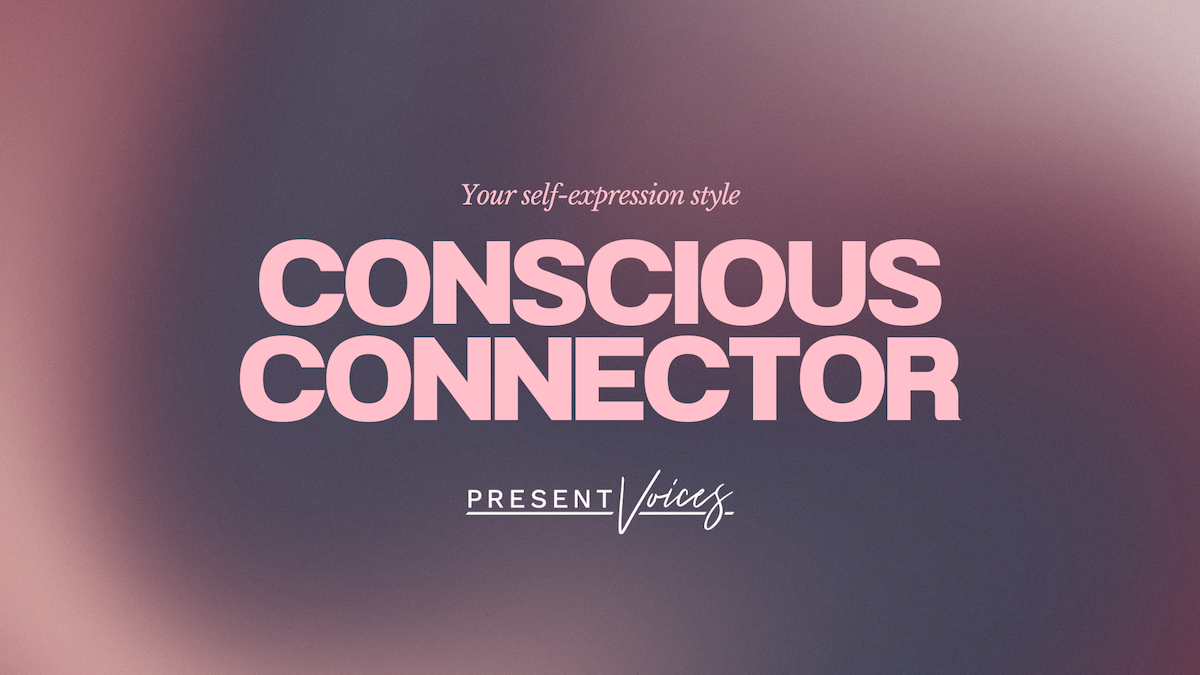Conscious Connector
Your self-expression style is that of a Conscious Connector. You excel in creating a comfortable atmosphere that encourages open dialogue with those around you. You're a natural at fostering collaboration and connection. You are deeply empathetic and are impacted by energy and subtle changes in those around you.
While your intuition is certainly a strength, you find it challenging sometimes to focus on your vision and set boundaries. You want to be perceived as both friendly and confident and sometimes struggle to find the balance. On video calls, you may look for validation in facial expressions and get distracted by inattention, especially from those you wish most to impress. You are comfortable with your team or those you work most closely with but become quiet or deferential with authority.
You care about collaboration and sometimes sacrifice your own voice in order to include others. You are less comfortable in the spotlight and eager to highlight the accomplishments of those around you. This might make you less likely to be recognized for your contributions. You want to articulate your value with authenticity, not arrogance.
This style can be enhanced by being intentional in each moment. How do you want to make your audience feel? Do you want them to feel supported? Do you want them to feel confident in you? Choose an intention that makes you feel capable and powerful—something you’re already good at.
As a conscious connector myself, I like to focus on making my audience feel supported or comfortable (especially when I’m with alphas who speak with a lot of authority. This intention elevates my own authority and gives me something tangible to focus on in the moment (instead of falling into the validation void).
Being intentional takes the pressure (and the spotlight) off of you and helps you refocus on your vision, mission, and those you are there to serve.
Can I change my communication style?
Our self-expression style is rarely innate or fixed. It’s the combination of our lived experience, societal feedback, and natural tendencies. Communication is dynamic and it changes with each audience and interaction. Instead of believing that your style is fixed and stagnant, change what you’re focusing on in the moment—this changes up your approach. If you tend to over-prioritize how you’re perceived, focus how you want to make your audience feel instead.
You will inevitably return to your habitual style, and when you do, refocus on your intention (how you want to make your audience feel) so you continue to focus on the work at hand.
Instead of vilifying habits or beating yourself up, remember that your power lives in your presence, not perfection. Keep practicing and see your self-expression style as a muscle to strengthen, not some plateau to achieve.

